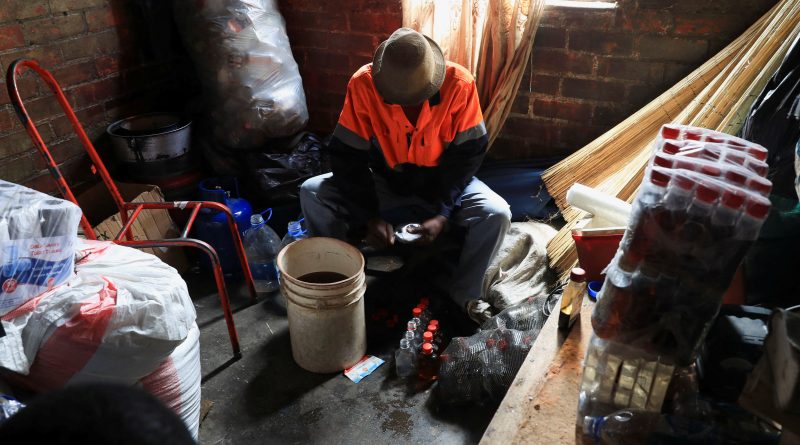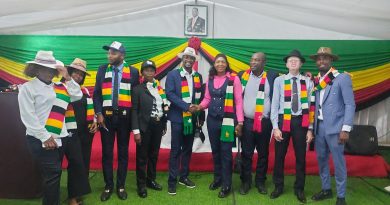Harare Awash With Fake Whisky, Syndicates Exploit Thirsty Market
“Ndatenga bottle rangu re Jack Daniels… spirit yekwani yandirikunwa yoyo guys. Rawandisadoro refake,” ranted hip-hop star Stunner, after what he believed was a relaxing nightcap turned into a chemical cocktail disaster.
Harare could be drowning in a flood of bogus booze, as fears grow that a significant portion of the whisky being sold in the capital is nothing but counterfeit liquor — laced with risk and brewed in danger.
The streets may look shiny with familiar whisky labels, but behind the scenes, a murky underworld of fake alcohol trade is thriving, powered by international criminal syndicates.
These counterfeiters have found gold in the thirst for affordable whisky and have avoided high-end brands like Johnnie Walker Blue Label or Glenfiddich 21, instead targeting fast-selling, lower-cost varieties.
“It’s simple business, this is a trade based on small profits and quick return and they know that the cheaper brands are the ones which sell fast,” said a local whisky dealer, who spoke on condition of anonymity.
“It’s not just about Harare. These guys have a wide network, and they have infiltrated South Africa.
“They have gone in Mozambique, you name it. It’s an underground business, and they don’t care about the health complications.”
The impact is being felt across social classes, especially among young adults and urban professionals.
Stunner took to social media to share a now-viral video lamenting his purchase of what he thought was a Jack Daniels bottle — only to find himself drinking what felt like kachasu.
“Let’s list down all the places selling fake alcohol coz haaaa ndo doro riri kuitisa tsaona irori thinking you just had one glass apa watorova kachasu equivalent to four glasses,” he posted.
“Now my night is ruined… Imagine buying popcorn wosvika kumba kusina mafuta.”
The health consequences of consuming this bootleg booze are dire. Doctors and authorities have expressed alarm over the rise in kidney-related ailments and sudden intoxication, particularly among the youth.
In some shocking revelations, it’s been alleged that these fake European-style whiskies are being manufactured in the same illicit factories used to mix chemicals for drug production.
According to H-Metro, national police spokesperson Commissioner Paul Nyathi confirmed the Zimbabwe Republic Police is cracking down on such practices.
“The Zimbabwe Republic Police is appealing to members of the public to report any shop selling or distributing counterfeit liquor products.
“We continue to urge liquor licence holders to avoid abusing their licences,” said Comm Nyathi.
In response, police, along with Ministry of Agriculture officials and the Inspectorate Department, recently raided several shops in downtown Harare, seizing fake pesticides, insecticides, and chemicals — and issuing stern warnings.
One shop owner along South Avenue recounted: “This time the team was serious… if they found any fake product, they removed it from the shelves. We’ve been urged to comply and stop selling unverified products.”
A report by Spanish newspaper El Pais last month highlighted that these syndicates are operating across Southern Africa.
Health workers and parents alike are sounding the alarm over what is becoming a regional health crisis — driven by fake alcohol that is cheap, toxic, and dangerously available.
The question now looms large: How many more glasses of poison will be poured before the city sobers up?




